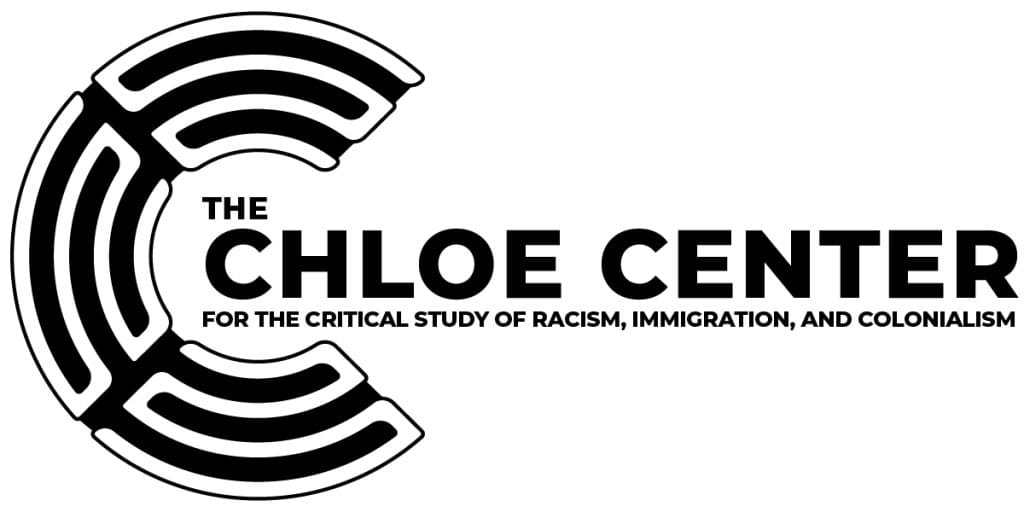This year, the Chloe Center for the Critical Study of Racism, Immigration, and Colonialism is inaugurating a new graduate symposium, building on prior RIC symposiums in 2021 and 2023. It will be held on the Homewood campus on Friday, May 3, 2024. See the below call for proposals, open to all PhD students in the humanities and social sciences at Johns Hopkins University.
Keywords for the Critical Study of
Racism, Immigration, and Colonialism
Annual Graduate Symposium
May 3, 2024
Call for Proposals
The significance of the terms we use to understand social life, the political economy of their production and circulation, and how they are interpreted and utilized is ever changing based on the material and political conditions of the world. Keywords shift in and out of focus with the shifting socio-political landscapes of our lives. In the wake of intensified state violence against Black and Asian people in 2020, terms such as “Black life” and “Asian hate” took on new political meaning. In light of the ongoing war in Gaza, the terms “genocide” and “colonialism” have not only become increasingly important within public and academic discourse but have become the objects of political theorization and contestation. The circulation of these terms has been facilitated by organized resistance against the structures the terms identify. This resistance has brought together diverse social groups and organizations from across the globe and has imbued the term “solidarity” with new significance.
New political conjunctures demand renewed attention to the power of naming. In Spring 2024 the Program in Racism, Immigration, and Citizenship (RIC) relaunched as the Chloe Center for the Critical Study of Racism, Immigration, and Colonialism. This new name cements the Center’s long-standing commitment to reparative research: work that both excavates historical legacies of racism in the production of modern institutions and world systems and strives to repair historical injustice. The name Chloe embodies this ethos. A former servant in the employ of Mr. Johns Hopkins, Chloe played an important role in the social reproduction of the Hopkins family and fortune. Yet there is little to no historical knowledge that attests to her life and work.
By adopting Chloe’s name, the Center strives to honor and highlight the archival and institutional erasure of a specific Black Baltimorean who shaped the city we find ourselves living and working in, as well as the general experience of working people who have built the nations, empires, and institutions of the modern world. The shift from “citizenship” to “colonialism” captures the structural production of unequal personhood and belonging across the world through regimes of repression ranging from slavery to policing to borders, while also emphasizing how such structures have been produced through broader relations of domination including genocide, land expropriation, and environmental and spatial transformation. The framework of colonialism also emphasizes ongoing denial of citizenship as well as active rejection of national identification among political communities, especially by Indigenous people across the globe.
This symposium invites graduate students in the humanities and social sciences at Johns Hopkins to draw on their ongoing doctoral research to re-think and expand upon the keywords that are at the crux of the Chloe Center’s research agenda beyond their conventional theorization through methodologically nationalist and identitarian frames. The rubric is intentionally broad. It is intended to create space to think collectively and newly about the terms “racism,” “immigration,” and “colonialism”: how they inform and inflect each other; the entangled global, historical, and political ideas, practices, and processes they embody; and how political actors and organizations across the world have mobilized to resist, reject, or reconstruct them.
Papers will be pre-circulated among symposium participants and discussed by Chloe Center faculty. Please submit a 300-word abstract to [email protected] by March 25, 2024 for consideration. Please also rank the keywords in terms of fit with your paper.

